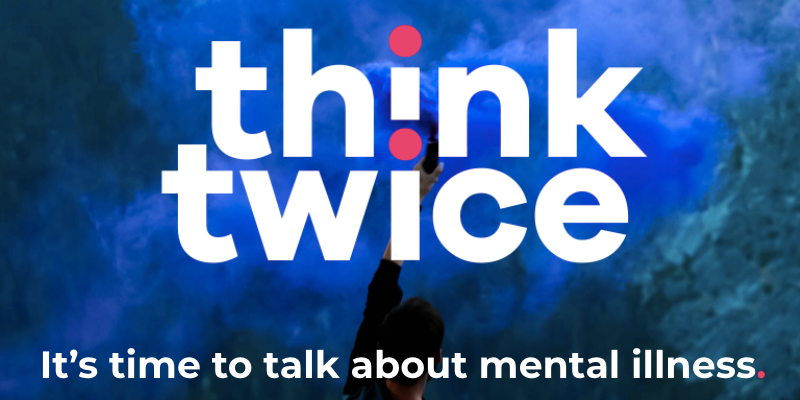'I believe we can make our churches true sanctuaries for everyone'
Founder Rachael Newham shares the story of Christian mental health charity ThinkTwice - and the three things every church can do to support the mental wellbeing of their congregations

When I scribbled a name and a very badly drawn butterfly in a notebook ten years ago, I could never have imagined what it would lead to.
I wanted to see a change in the way people with mental illnesses were treated; and I wanted to see the gospel shared in a way that would bring a balm to pain, rather than another expectation to lay upon already weary and laden shoulders.
So I started a blog and a facebook page for something that didn’t exist – but something that I hoped would provide a way to explore where God could be found in the midst of mental health issues and equip churches to help those within their communities to care in the most helpful way.
Back at university, I began to hold ‘Mental Health Prayer’ every Monday evening. A few of us gathered in the student centre on squeaky blue leather sofas and began to explore a different mental health condition each week before praying for those living with it, the mental health services which sought to provide help and those who were loving them.
When I finished my undergraduate degree, ThinkTwice began to expand a little. We got a bank account, I spoke at a national youth conference and then finally in 2014 I ran our first ever ThinkTwice course! We got trustees, led more courses, spoke at more events and provided resources online. In 2015 I went freelance and began to dedicate more time to ThinkTwice and in 2016 we were registered with the charity commission! It’s not always been fun or easy, but I’ve always known it’s important.
Every time I’ve felt discouraged; I’ve been reminded why it is I run ThinkTwice; it's to change the conversation around mental health. To raise awareness, provide training and enable people to care for those living with mental illness in the best way possible.
For too long the church has been the last place people want to go when they’re struggling with their mental health; they’ve been told it’s because of a lack of faith or worse, they’ve been blocked from ministry roles or felt belittled by the language used.
It doesn’t have to be this way – and it shouldn’t. The gospel speaks of Jesus reaching out to those society neglected, of him bringing difficult emotions to God in prayer and offering healing with his presence.
I believe there are three things every church can do to support the mental wellbeing of their congregations:
-
Think about the language used; name the difficult emotions presented in scripture, don’t dismiss the experience of this with mental illness as being ‘crazy’ or criminalise those who struggle with suicidal thoughts by using language like ‘failed suicide attempt’ or ‘committed suicide’.
-
Connect with the emotions in the passage your preaching on; we don’t want to diagnose ancient biblical characters with mental health problems, but we can see clearly that David struggled with his sadness and despair, that Jesus experienced extreme anxiety the night before he was crucified and wept at the death of his friend Lazarus.
-
Get training; for your clergy, pastoral care team and prayer ministry teams. It can be as simple as reading a book together, going to a seminar at a Christian festival or more comprehensive by booking a whole training day. The first step to ending stigma is to get educated.
We are so grateful now to be amongst a community of organisations trying to change the narrative around mental health in churches; along with the Mind and Soul Foundation, Kintsugi Hope, Sanctuary Mental Health Ministries and Renew Wellbeing I believe we can make our churches true sanctuaries for everyone.
We’ve had ten amazing years so far – but there’s still work to do – so let’s get going!
Rachael Newham is the founder of ThinkTwice. ThinkTwice is a Christian mental health charity which aims to raise awareness of mental health issues in the church and provides training for churches, charities and youth groups to help them to respond to mental health issues and reflect theologically on mental health.
This blog first appeared on the ThinkTwice website, and is republished with permission.
Do you have a view? What has helped you during this time? Share your thoughts via our letters' page.
Baptist Times, 12/10/2020